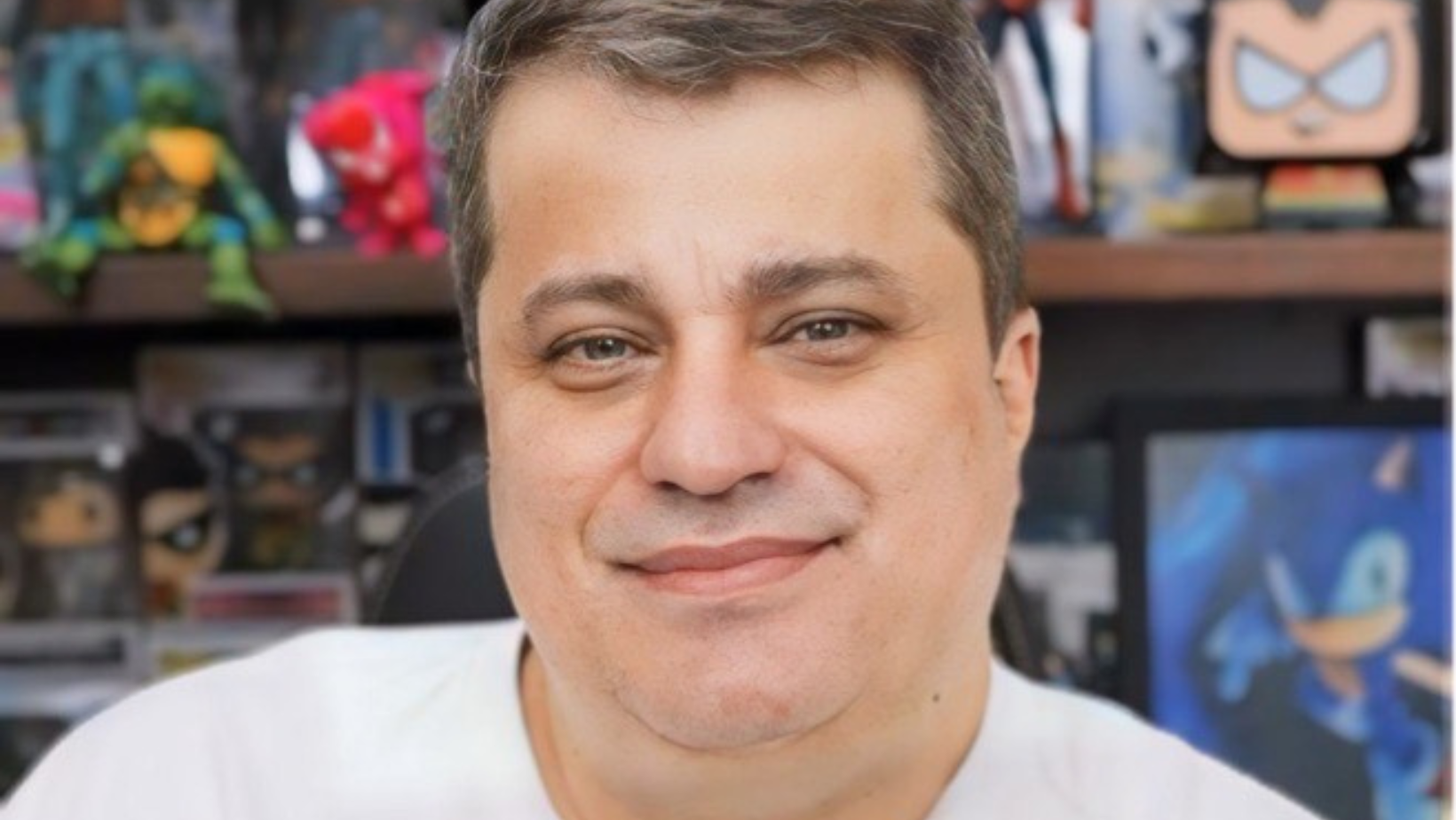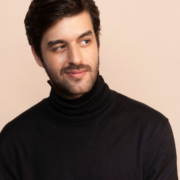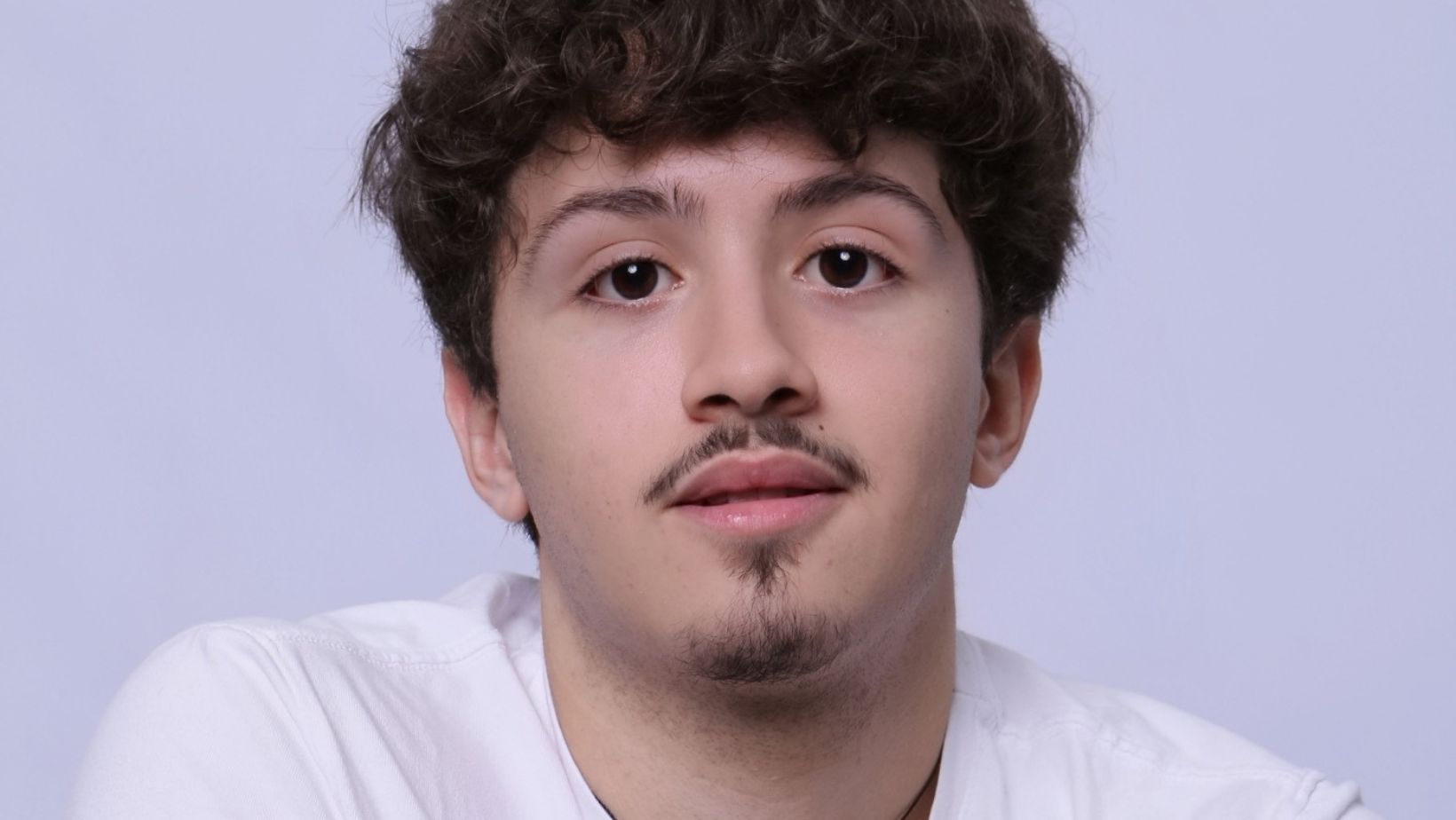Discover how Manolo Rey , legendary Brazilian voice actor, turned his passion for art into an iconic career, voicing iconic characters like Spider-Man and Luigi. From his first experiences in 1987 to his take on the evolution of dubbing and the impact of new technologies on the industry, Rey shares valuable insights into his work and the passing on of his artistic legacy to the next generation, including his daughter, Bruna Laynes . A journey of art, emotion and challenges in an increasingly digital world.
Manolo, firstly I would like to thank you for the opportunity, and start by giving a small retrospective of the time you have been in dubbing. What made you choose to work as an actor and voice actor?
Since I was a child, I always wanted to be an actor. My father advised me to be a football player and I ended up training at Botafogo’s children’s club, in Marechal Hermes. I became a goalkeeper. But my vocation was really for art.
It is undeniable to say that since its popularization in Brazil, dubbing has gone through several phases in its trajectory, including the emergence of younger voice actors, such as children who are now in the market. Comparing the time when you started in 1987 to now, how do you see these advances that have been occurring in art and especially the new generation of artists that is arriving?
Some time ago, children’s roles were played by young people, with light voices. There were a lot more deep voices in the cast. There was a proportion in favor of low voices. This was changing and adapting to the Brazilian reality. In the USA it is common to see an actor with a very deep voice, the voice of Cid Moreira, you know? Here, Cid Moreira stood out precisely because he had a different voice. It wasn’t common.
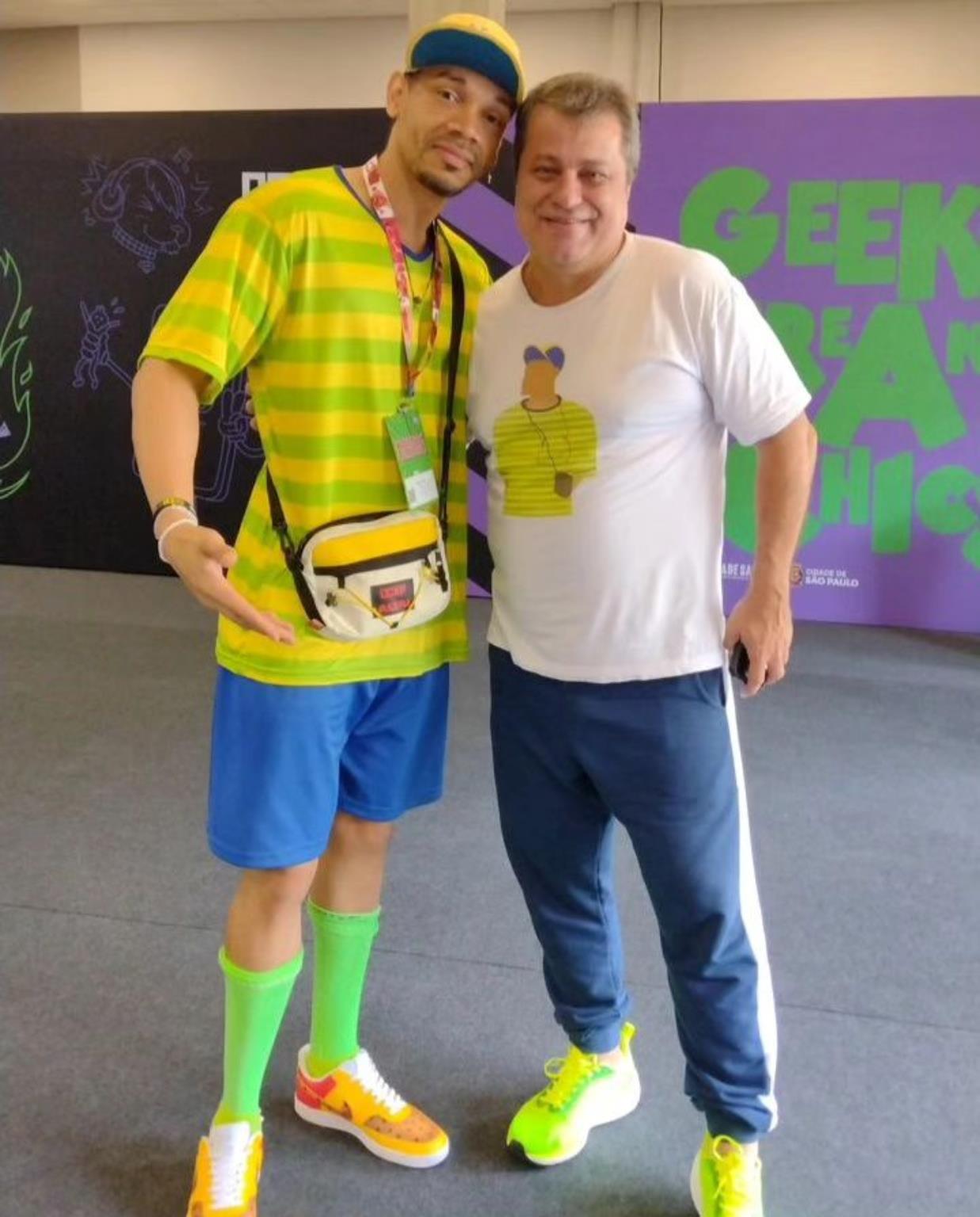
During your career, you voiced iconic characters such as Sonic, Luigi, Spider-Man, Porky Pig, among others who have impacted the lives of many pop culture fans. How does it feel to know that you are part of the story of characters that reach so many people, especially art being considered something practically immortal?
It’s very rewarding. I participated in the childhood of many, and became a reference. About 20 years ago I made a shirt with the phrase I heard most at events, when I spoke to someone: “Wow, it seems like I’m watching it dubbed”. I wore a shirt with a TV and the following words to an event in Rio de Janeiro: “Smile, You’re Watching Dubbed”.
In the early 2000s, you began voicing a character that became quite notable in your career – Spider-Man, in the version originally played by Tobey Maguire. How important is this character in your career and your opinion regarding the new versions released later in the franchise?
This character is very important. It was a transformation in dubbing for cinema. Until that time, we dubbed a maximum of 5 films per year for cinema, always censorship-free. From Spider-Man onwards this started to change. We currently dub more than 100 productions per year for cinema.
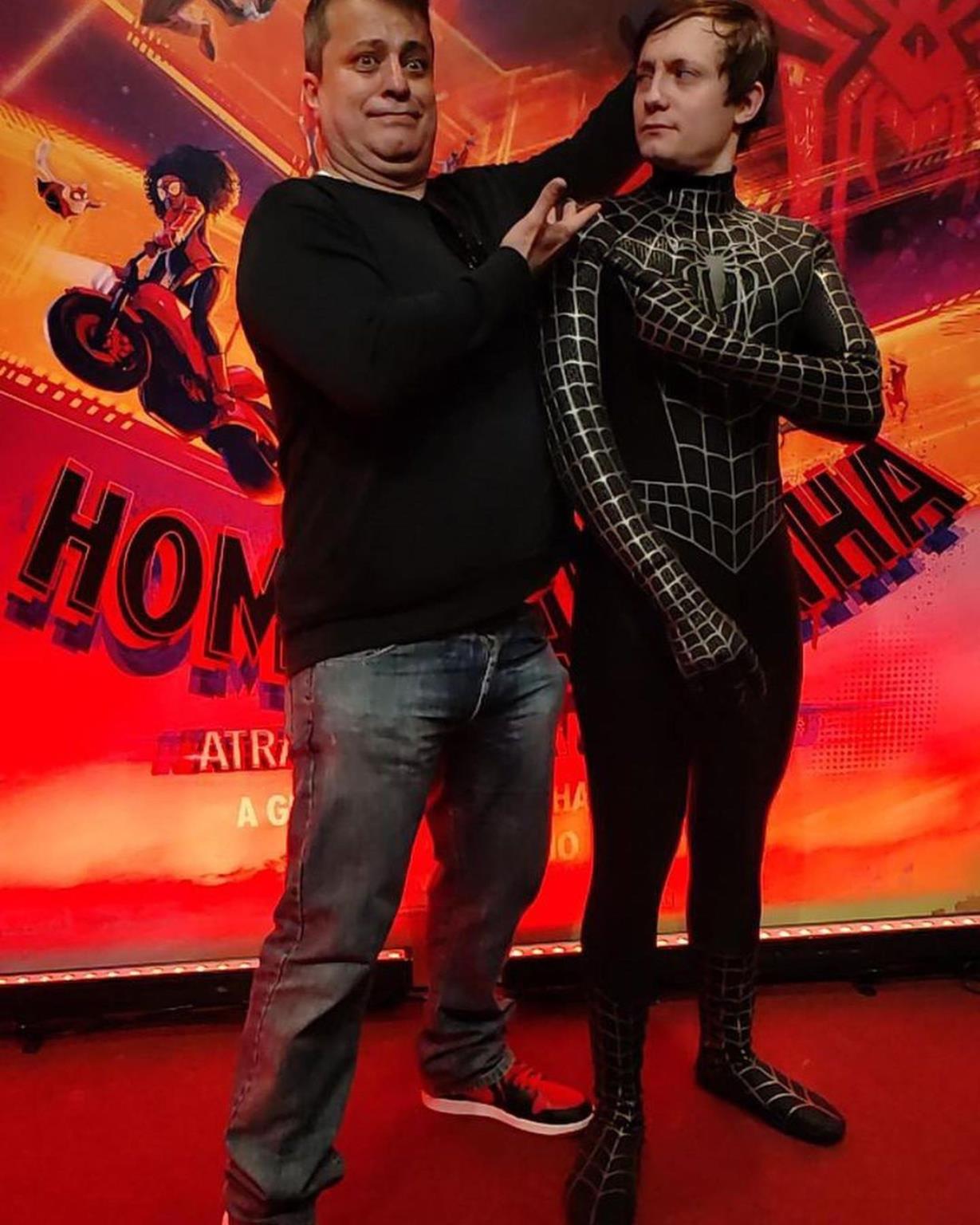
In addition to your work as a voice actor, you participated in the soap opera “Roque Santeiro” in 1985, where you starred alongside Lima Duarte. Despite having established yourself strongly in dubbing, do you miss being in front of the cameras?
I no longer invested in working on camera. Is very difficult. Many say that dubbing is a closed market (it is), but it is not impossible to enter. I can tell you some simple tips. But what about TV? How do you get in?
Speaking of cameras, in 2016 the channel “Quem Dubla” was launched, where together with the voice actors, Matheus Perisse, Érika Menezes, Ana Elena Bittencourt and her daughter, also a voice actor, Bruna Laynes , commented a little about their daily lives. your profession day. How did the idea of venturing onto the platform come about?
I had created a website, with a database of actors/voice actors/films, and it was called “Who Dubs”. It was from a blog by Miguel Rosenberg. I had the idea of giving the name “Quem Dubla”, and he used “Quem Dubla Quem”. I spoke to him if he would mind having a similar name (which is common in dubbing, see the names of companies), and he was happy to accept it. That’s where the website came from. When my mother passed away, I went into a deep depression and looked for an activity that would occupy me. Gustavo Veiga ran the “Quem Dubla” website, and I had the idea of making videos for the website, however, he advised me against it, saying that it would take a lot of bandwidth and that I wouldn’t gain anything from it. He suggested YouTube, as I would be paid. Look, I even received something, but I didn’t pay 1% of what I spent.
Speaking of Bruna, today both you and she share the same profession, with your daughter starting in the early 2000s, as a child. How does it feel to have transferred this art to your daughter and what does that represent as a father?
I feel fulfilled, because she has her strength, which she gained herself, she didn’t have my protection. I never touched my head, neither hers nor anyone I mentored. I have always tried to help newbies, provide guidance, and pass on my techniques. It was no different with her. But for her to dub something with me, she had to convince me. She even cried, for example, in “ Pretty Little Liars ”, because I didn’t see her voicing Sasha Pietersen . I was convinced by others to accept it. But, anyway, she is an actress that I cast very little in my career as a director. You can investigate.
Addressing a more recent subject to conclude, last year there was a lot of talk about the advancement of artificial intelligence, and this subject ended up being much debated due to the risk of it being used in dubbing or other functions in the audiovisual industry. In addition to the protest by some voice actors in Brazil, this issue led to a writer’s strike in Hollywood. What is your opinion on the progress of this situation and do you believe that the profession is safe at the moment?
Artificial Intelligence has been around for a long time. The problem is that we are in the midst of another industrial revolution. And they try to sell several useless tools that won’t stick. One that would help a lot would be for the visually impaired, to be able to read any book with AI. Perhaps, over time, it will be applied to narrations and audio descriptions, but in dubbing it is very difficult.
Follow Manolo Rey on Instagram


